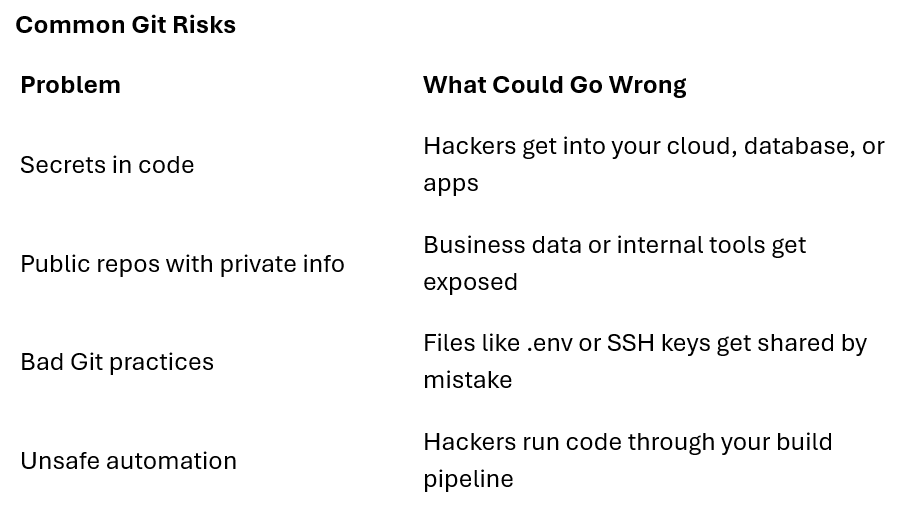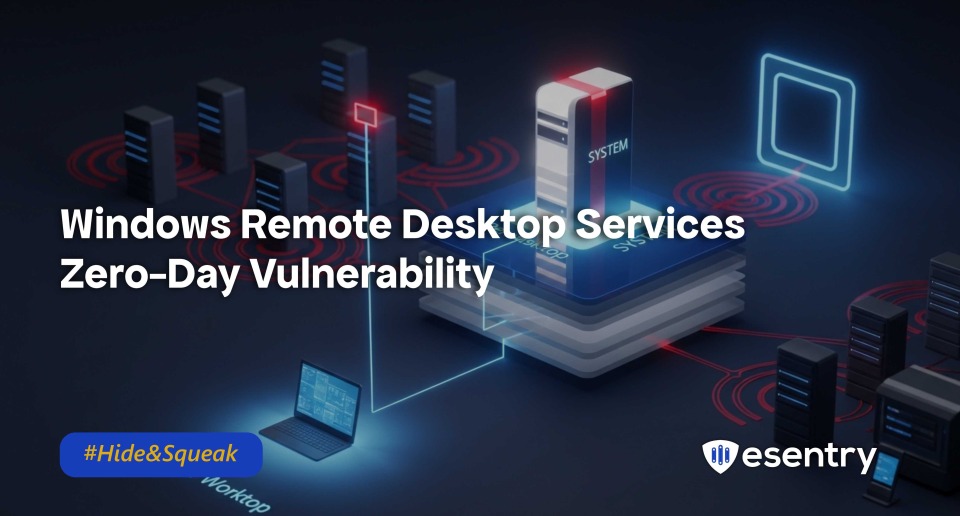Git repositories are the lifeblood of modern software development, driving collaboration and innovation at lightning speed. But lurking behind the seamless commits and pull requests lies a silent threat: exposed secrets, sensitive credentials, and vulnerable codebases ripe for exploitation.
Why Git?
Because Attackers Already Know. You’ve locked down your endpoints. Hardened your network. But your Git repositories?
That’s where attackers are quietly looking and they’re finding gold.
Here’s why Git is an under-the-radarjackpot:
- Secrets leakage – API keys, passwords, tokens hidden in plain sight
- Information disclosure – Internal logic, architecture diagrams, or sensitive URLs
- Recon playground – Perfect insights into your development lifecycle
- Privilege escalation – Misconfigured scripts that do more than they should
Real-World Trends
Recent events have highlighted a concerning rise in the exploitation of Git content:
- Rapid Credential Harvesting: Automated bots are snatching leaked credentials from public GitHub repositories within minutes of being pushed.
- C2 Operations: Code hosting platforms are increasingly used for command-and-control operations and malware staging.
- Supply Chain Vulnerabilities: Developers inadvertently clone malicious libraries or pull unverified GitHub actions, opening the door to attacks.
What You Can Do
1. Check Your Repositories: find sensitive info in your code and review old commits, secrets might still be there.
2. Store Secrets Safely: Use secret managers like AWS Secrets Manager or Hashi Corp Vault and Add tools that block secrets before you commit them.
3. Teach Developers Good Habits : Don’t commit sensitive files ,Turn on two-factor authentication (2FA) and limit who has access to your repos.
4. Keep an Eye on Automation : Review GitHub Actions and other tools for risky code.

Git Repositories isn’t just for developers anymore, it’s a security risk if left unprotected. Git should be treated like any important part of your system not just a place to store code. Consider the following questions:
- What if someone gains read access to all your code?
- What happens if an attacker clones and modifies your repository?
- Do you know who last pushed that commit?








.png)
.png)